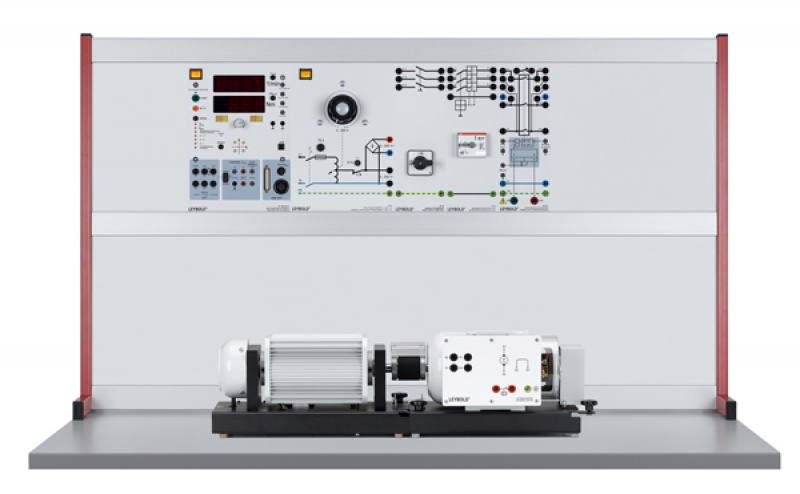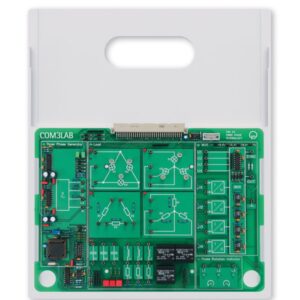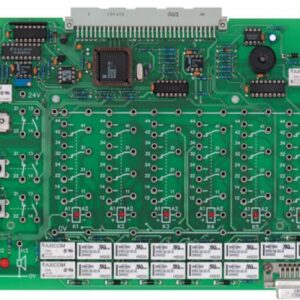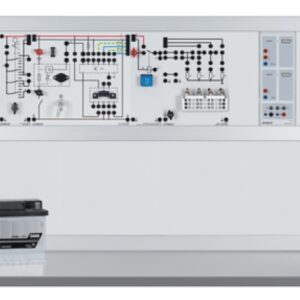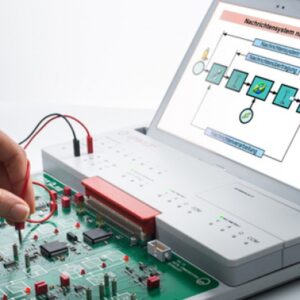Opis
The experiments are carried out using machines of industrial manufacture. All the test machines are equipped with a special base for attachment to the Machine test system 0.3. The system allows the characteristics of the machines under test to be recorded. Power for the machines under test is provided via a variable transformer.
Objectives
- Protective measures and electrical safety
- Setting up electrical machines and putting them into operation
- Use of starting circuits
- Assessment of electrical machine characteristics
Universal motors are a kind of commutator machine for both DC and AC operation. This is achieved by additional lamination of the iron in the stator. Universal motors can also be called single-phase series-wound motors. They are in widespread use, for example, in household appliances and machine tools.
Features
- In order to protect against overheating, the stator windings of the test machines are equipped with temperature sensors
- Should overheating occur, the machine testing system automatically shuts down the machine under test, thus preventing any damage to it.
- The test machines are equipped with an educationally designed terminal board with the winding configuration printed on it.
- The ends of all the windings are connected to the terminal board and can be accessed via 4-mm safety sockets.
- Computer-supported acquisition of measurement data provides for meaningful measurement results.
The complete equipment set is equally suitable for student experiments in laboratories with low voltage supplies (230 V AC) and for setting up on a mobile trolley for demonstration by teachers in a classroom. The procedures for the experiments are provided in a printed manual.
The target group is made up of commercial apprentices and students of electrical machine construction. The course offers experiments at an intermediate level and also allows for the necessary insight into machine behaviour for scientific interpretation at undergraduate level.
In this equipment set, a universal motor is operated with alternating current.
Topics
- Connection and operation of universal machines in an AC network
- Reversing direction of rotation
- Measurement of efficiency
- Armature reaction and commutation
- Characteristics of motors
- Load characteristics
Similar to illustration
| 732 00 | Universal motor 0.3 | 1 |
| 732 14 | Motor protection switch, 1-1.6 A | 1 |
| 731 42 | On/off switch, three-pole | 1 |
| 745 561 | Power circuit breaker module | 1 |
| 731 989USB | Machine test system 0.3 | 1 |
| 728 421 | CBM10 MOMO/FCCP | 1 |
| 531 282 | Multimeter Metrahit Pro | 2 |
| 727 12 | Power factor meter | 1 |
| 726 09 | Panel frame T130, two-level | 1 |
| 726 85 | Adjustable transformer 0…260 V | 1 |
| 731 06 | Coupling 0.3 | 1 |
| 731 07 | Shaft end guard 0.3 | 1 |
| 731 081 | Coupling guard 0.3 transparent | 1 |
| 500 59 | Safety bridging plugs, black, set of 10 | 2 |
| 500 591 | Safety bridging plugs, yellow/green, set of 10 | 1 |
| 500 851 | Safety connecting leads, 32 A, set of 32 | 1 |
| 500 852 | Safety connecting leads, 32 A, yellow/green, set of 10 | 1 |
| 569 2201L | LIT: AC Machines (in German) T 10.3.1 | 1 |
| 569 2201S | LIT: AC Machines (in German) T 10.3.1 | 1 |
| 569 2202 | * LIT: AC Machines (in english) T 10.3.1 | 1 |
Articles marked with * are not essential, we do however recommend them to carry out the experiment.

